This is our regular round up of stories of progress from around the world. If you'd like to join the 50,000 people who get this in their inbox every week, you can subscribe for free below.
Good news you didn't hear about
A massive new study has shown that the Mosquirix vaccine for malaria has cut deaths among young children by 13% and reduced severe cases by 22% during its four-year pilot rollout to two million kids in three countries. Epidemiologist Mary Hamel: 'The results are so remarkable I was surprised I didn’t hear any gasps when it was stated.' Science
Emmanuel Macron has promised that full reproductive rights will be enshrined in the French constitution by next year. The government will submit a draft text to the country's highest court within days. 'In 2024, the right of women to choose will become irreversible.' Guardian
The WHO just released a report on 'a decade of success' in responding to neglected tropical diseases in Africa. This is one of the great public health stories of our time. In 2023, 88 million fewer people in Africa require interventions against NTDs than in 2013. 'The successes of the past decade are built on over 70 years of shared experiences and learnings.'
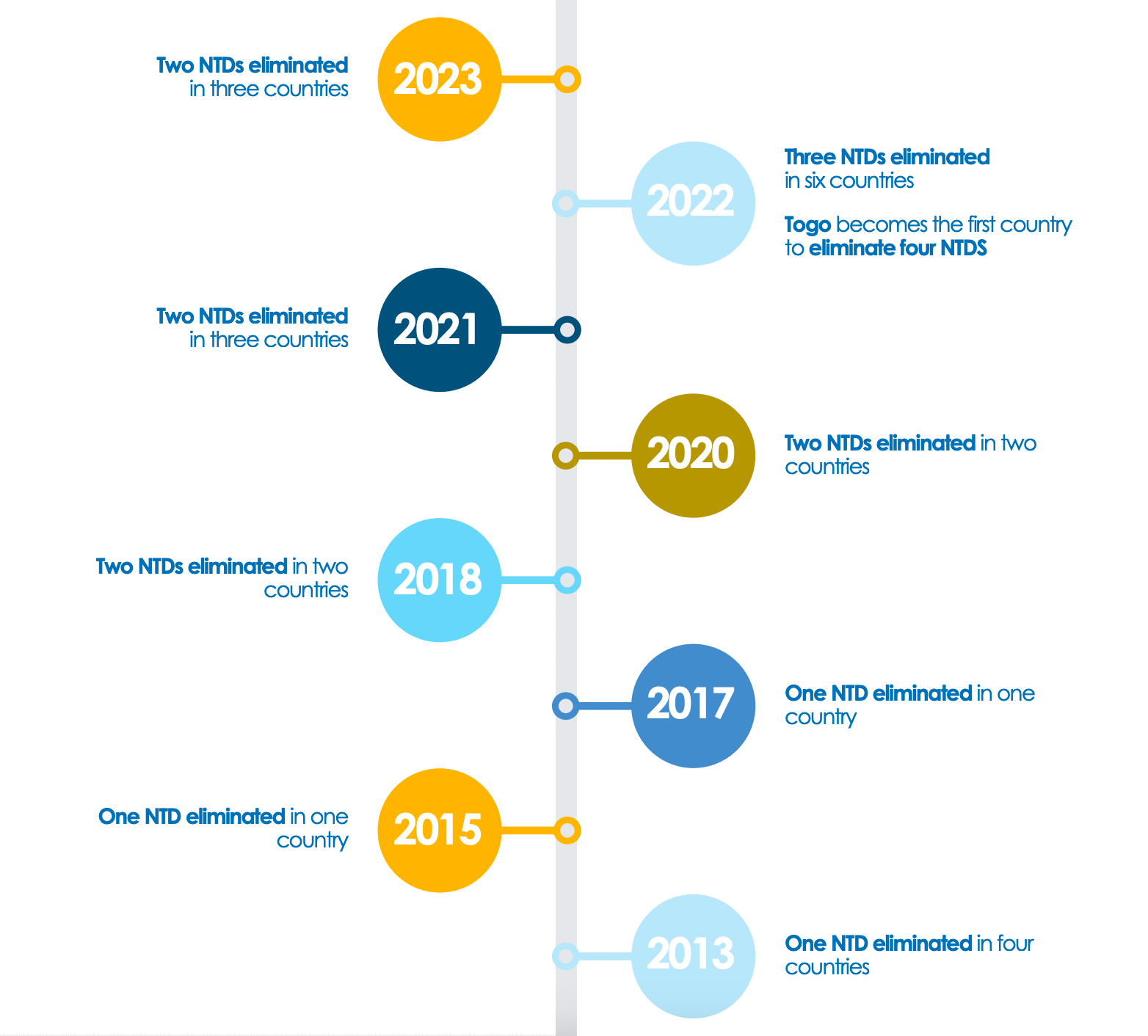
Last week, Nigeria introduced the human papillomavirus vaccine into its routine immunisation schedule, aiming to reach 7.7 million girls in the largest single round of HPV vaccinations across Africa. Under the new immunisation protocol, all girls aged 9-14 will receive the vaccine, which prevents at least 70% of all cervical cancers. UN
Open defecation is the practise of defecating in fields, forests, bushes, bodies of water, or other open spaces. Eliminating it is one of the top SDG priorities, and humanity is making great progress. Between 2000 and 2022, the number of people practising open defecation globally fell from 1.3 billion to 419 million, a reduction of more than two-thirds.
Thanks to a new law, California will now guarantee time off work following a miscarriage or other reproductive loss, including failed adoption, in-vitro fertilisation, or surrogacy. This new law ensures leave for grieving and recovering would-be parents and was passed with largely bipartisan support. Bloomberg
Tanzania is making incredible progress on electrification. Since 2017 it has laid more than 900,000 new connections, providing over 4.5 million people with access to electricity. Among these are 1,664 healthcare facilities and 5,900 education facilities. Overall access has increased from 7% in 2011 to 37.7% in 2020, one of the fastest access expansion rates in sub-Saharan Africa. World Bank

A vast project is underway in seven countries in northern Europe to combat isolation by promoting inclusion. Twenty-five organisations and companies are taking part in the project, with some initiatives aiming to overcome solitude and isolation among young people, and others among senior citizens. Euro News
Despite the widely-held belief that dementia is destined to rise exponentially as global populations age, in the developed world at least, the prospects of avoiding it are much better than they were a generation ago. In Europe and North America, incidence has fallen by 13% per decade over the past 25 years, and that trend is now showing up in other countries too. 'There is reason for hope.' FT
Underreported news: incarceration rates in the US have been declining steadily over the course of this century. From 2000 to 2021, the imprisonment rate fell by 70% for Black women and by 48% for Black men. There's still a long way to go to overcome racial inequality, but this is genuine progress. The 19th
Yes, everything in America is awful, apart from the fact that GDP growth reached 4.9% in the third quarter; the unemployment rate continues to hover near record lows; the prime-age employment rate is near record highs; inflation has come way down and is now very close to being normalised; American workers have gotten substantial raises since 2019 (adjusted for inflation), with particularly strong gains for low-wage workers; and gains from the last three years have eliminated around a quarter of the country's increase in inequality from the last four decades.
Why is everyone so pissed off? Because it's a vibecession, not a recession.
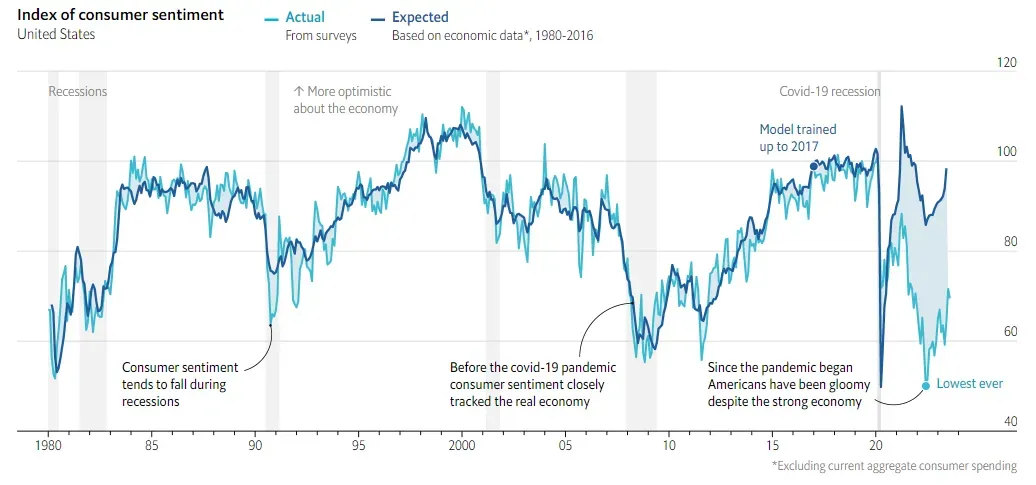
One side effect of the lowest unemployment rate in 50 years is that US workers have a lot more power. A strong job market has allowed unions to stake out more aggressive bargaining positions, and it's working—the United Auto Workers just won a massive victory against the Detroit automakers, hot on the heels of a big win for the International Brotherhood of Teamsters back in August. NYT
Even more good news you didn't hear about
China-US relations might be thawing, with Xi calling last week for more stable bilateral ties built on the principles of 'mutual respect, peaceful co-existence and win-win cooperation.' The amazing story of how Kyrgyzstan eradicated malaria. A relatively bullish case for Latin America. More people in the United States are getting access to PrEP, a major plank of the initiative to end HIV by 2030. How activists in Kentucky stepped in to deliver on the promise of voting rights restoration. Maine’s violent crime rate was lower in 2022 than it’s been in four decades. Columbus, Ohio just wiped out $335 million of medical debt for 340,000 people. A Hong Kong court ruled that same-sex couples hold equal inheritance rights. In the last two weeks, Pride marches have taken place in Mauritius (to celebrate the recent decriminalisation victory), in Johannesburg (in solidarity with Ugandan and African LGBTQ people), and in Taiwan (176,000 people, the largest march of its kind in Asia).

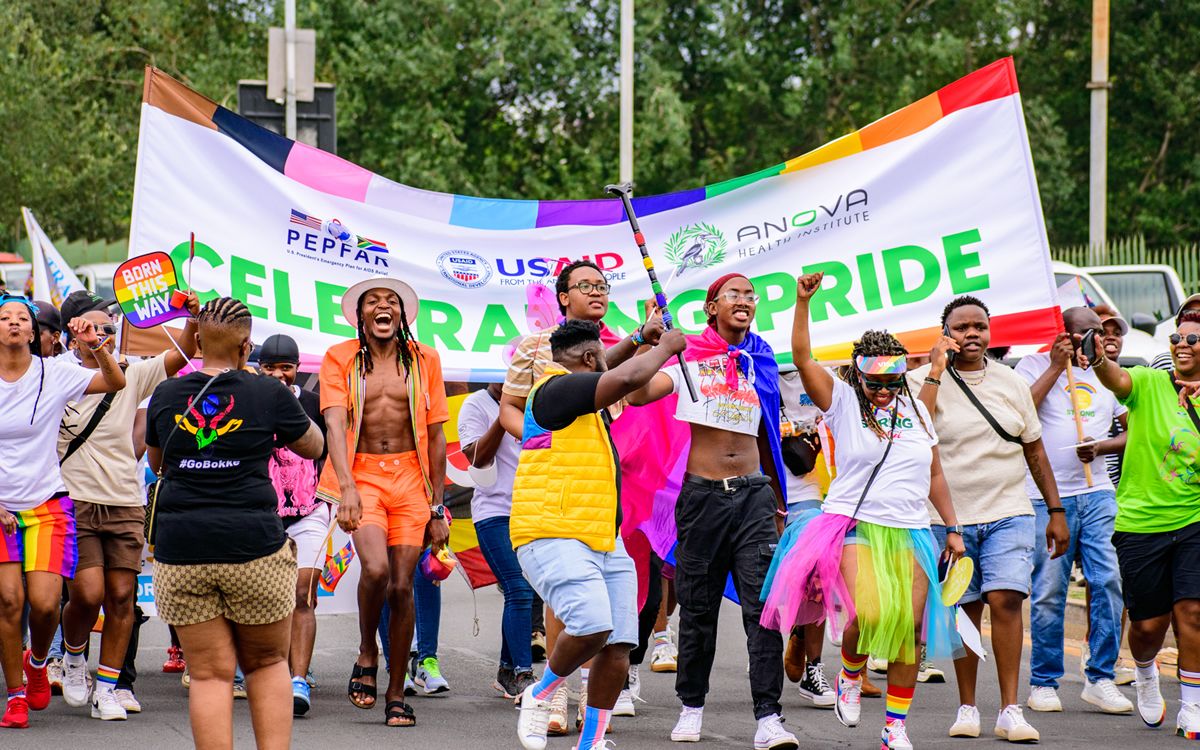


Clockwise from top left: Mauritius' annual Pride parade on 21st October 2023, Johannesburg Pride on 29th October 2023, Taiwan's Vice President Lai Ching-te in the Taiwan Pride on 29th October 2023, and another photo from the same even
Bonus story from this week's paid edition
When it comes to carbon emissions and climate change, we are turning the tide, in some cases much quicker than anticipated. The world is still a long way off track on what is needed to stay below 1.5°C, but the clean energy transition is happening. Here's what the latest data from the IEA's World Energy Outlook show:
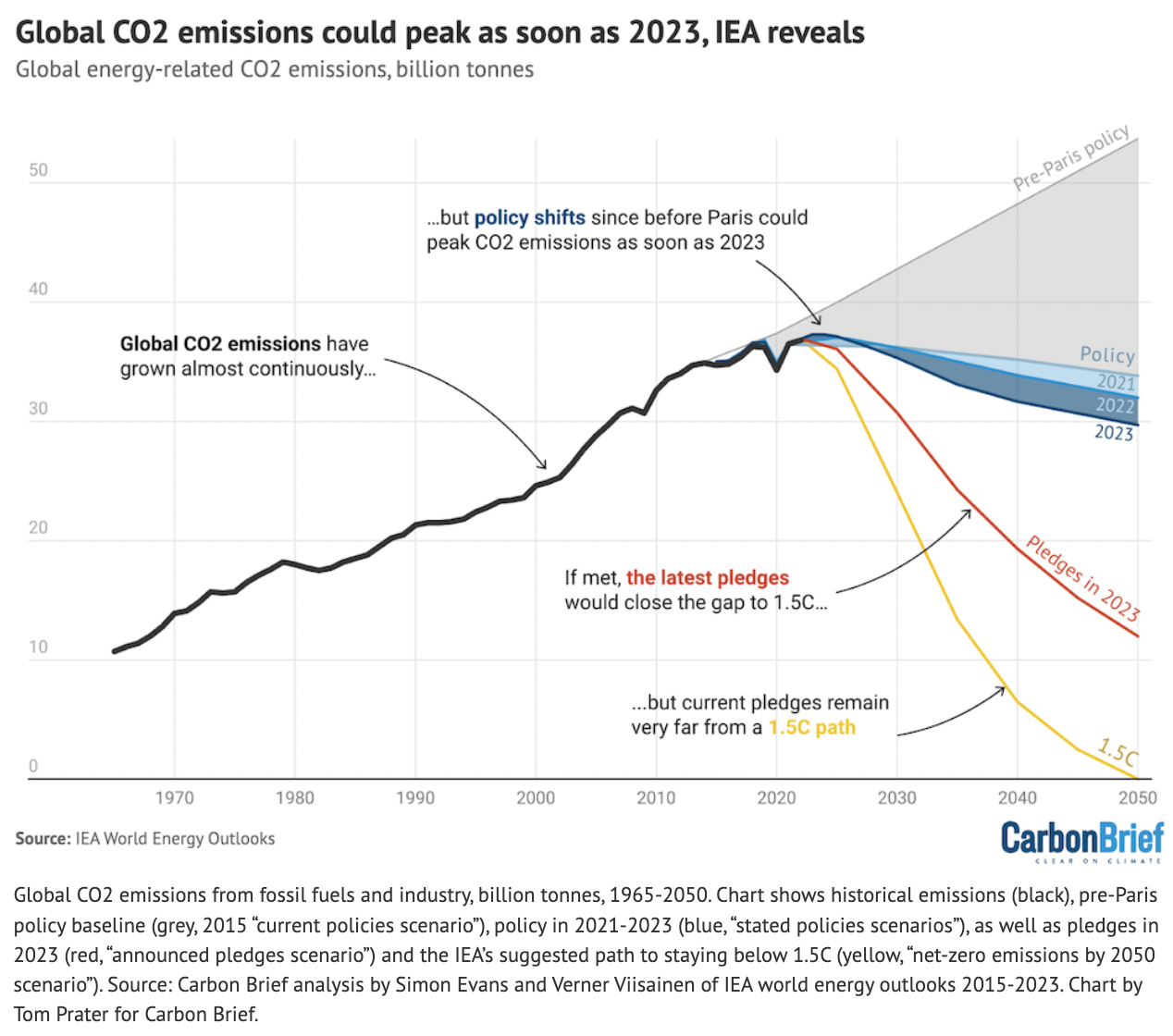
Other highlights
* Global fossil fuel use will peak two years earlier than expected.
* The outlook for solar capacity in 2050 has risen by 69% since last year(!!).
* 20% more EVs are expected to be on the roads in 2030 than predicted last year.
* Based on current policies, global warming is now expected to reach 2.4°C, down from 2.6°C in 2021 and 3.5°C in 2015.
The only home we've ever known
New Caledonia will protect 10% of its economic exclusive zone to safeguard coral reefs, seamounts, and a deep-sea trench from industrial activities. A decade ago, the 1.3 million km2 zone was established as a marine protected area, but there were still exceptions. The new protections will preserve habitats for species including whales, turtles, and seabirds. Mongabay
The Titanho Nijaamu La Libertad Indigenous Reserve in the Colombian Amazon has been expanded by 21,921 hectares, bringing the total area to 24,681 hectares. The reserve’s four Indigenous groups have fought for 25 years to protect the area, which is home to endangered aquatic mammals like the Amazonian manatee and the Pink River and Tucuxi dolphins. Andes-Amazon Fund
Milan is planning to ban cars in its city centre from 2024, including the Fashion Quadrilatero, where many of the high-end boutiques are located, to tackle rising pollution levels. The city follows the lead of Stockholm, which announced a similar initiative last month. Euro News
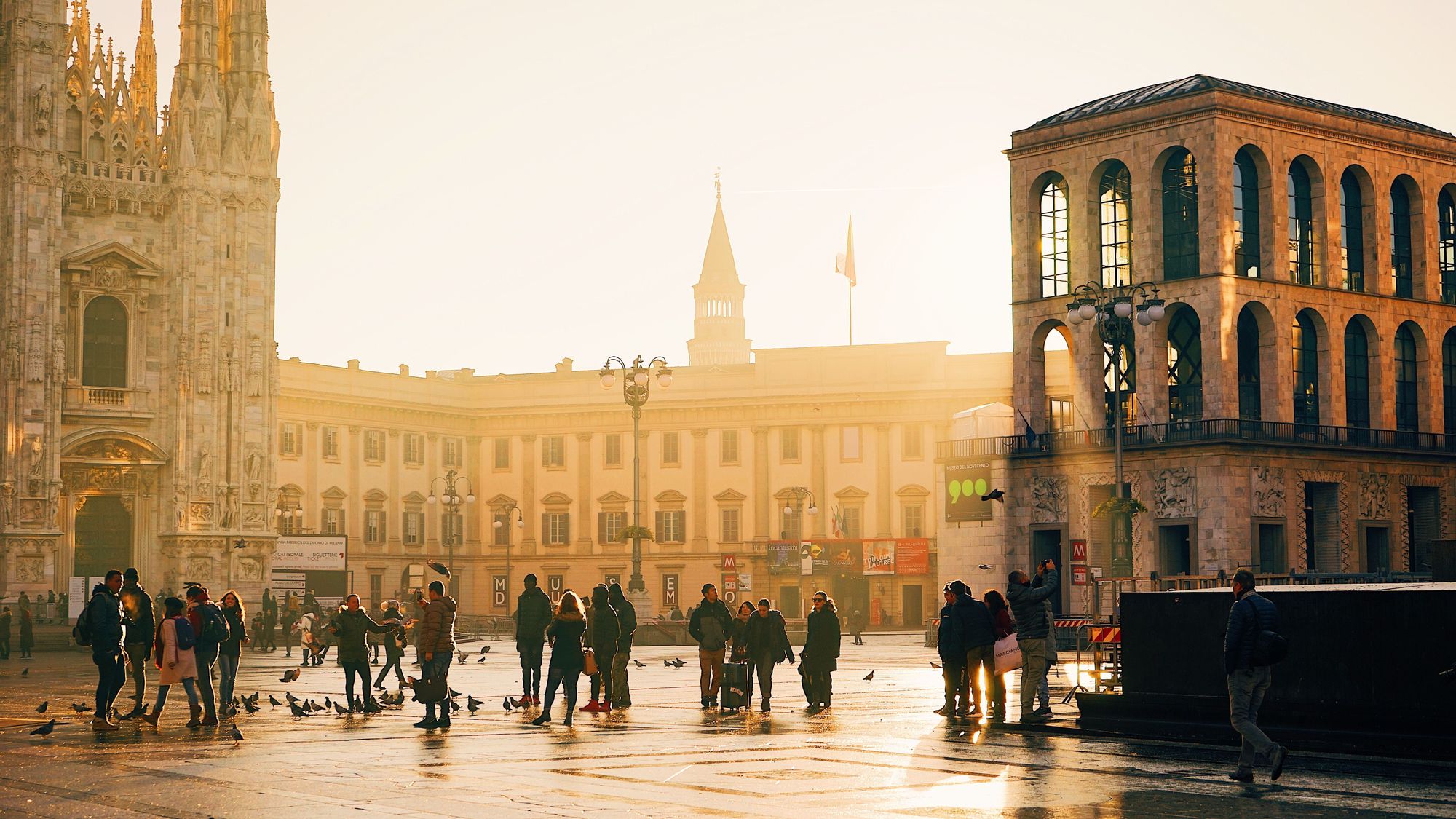
China is ramping up its marine environmental monitoring with a coordinated effort across all levels of government and more penalties for violations, and Honduras has implemented its first national strategy to protect coastal wetland ecosystems, including mangroves, marshes, and seagrass beds.
The EU will halve pesticide use by 2030, and pesticides deemed ‘hazardous’ will be cut back by two-thirds compared with 2013-2017. The use of pesticides in designated sensitive areas like public parks, schools, and protected sites has also been banned. Le Monde
British Columbia will protect old-growth forests thanks to a $300 million fund for Indigenous Conservation. The money will help conserve critical habitats for endangered species like the spotted owl and southern mountain caribou, while promoting cultural and eco-tourism ventures and non-timber forest product harvesting. Narwhal
Three nurseries in São Paulo are producing around 1.5 million native seedlings each year to green the city with rare and endangered native plants. The seedlings are used to landscape squares and streets, with local schools taking part in a collaborative planting of almost 10,000 trees in underprivileged areas of the city. Mongabay
Around the world, rewilding efforts are focusing on abandoned golf courses. In the United States, course closures have outweighed new openings every year since 2006, creating excellent opportunities for conservationists to repurpose them into landscapes that boost biodiversity. CNN
The 195-acre Valley View Golf Course in Akron, Ohio, is being restored and rewilded.
A 'Global Declaration for River Dolphins' has been signed by 11 Asian and South American countries to save the world’s six surviving species of river dolphins from extinction. The landmark agreement will help eradicate gillnets and reduce pollution in rivers, including the Amazon, Ganges, Indus, Mekong, and Yangtze. Khmer Times
Around a billion birds in the US die each year from flying into windows and glass walls, and now efforts are underway to make cities more bird-friendly. Businesses in 48 cities are taking part in 'lights out' programs to dim lights during spring and fall migrations, and new constructions are incorporating bird-friendly glass. Yale360
Proving that slow and steady wins the race, decades after protection measures were first introduced, the number of sea turtle nests across Florida has increased exponentially. Space Coast has just recorded over 52,500 nests, and the Archie Carr National Wildlife Refuge has seen a 195% increase in green sea turtles, one of the most threatened species of turtles. ABC
Across the UK, local wildlife restoration projects are boosting the populations of endangered small mammals, invertebrates, and birds; and in France, the successful reintroduction of brown bears to the Central Pyrenees in 1996 has resulted in 76 bears currently roaming the mountain range— the highest number for a century.
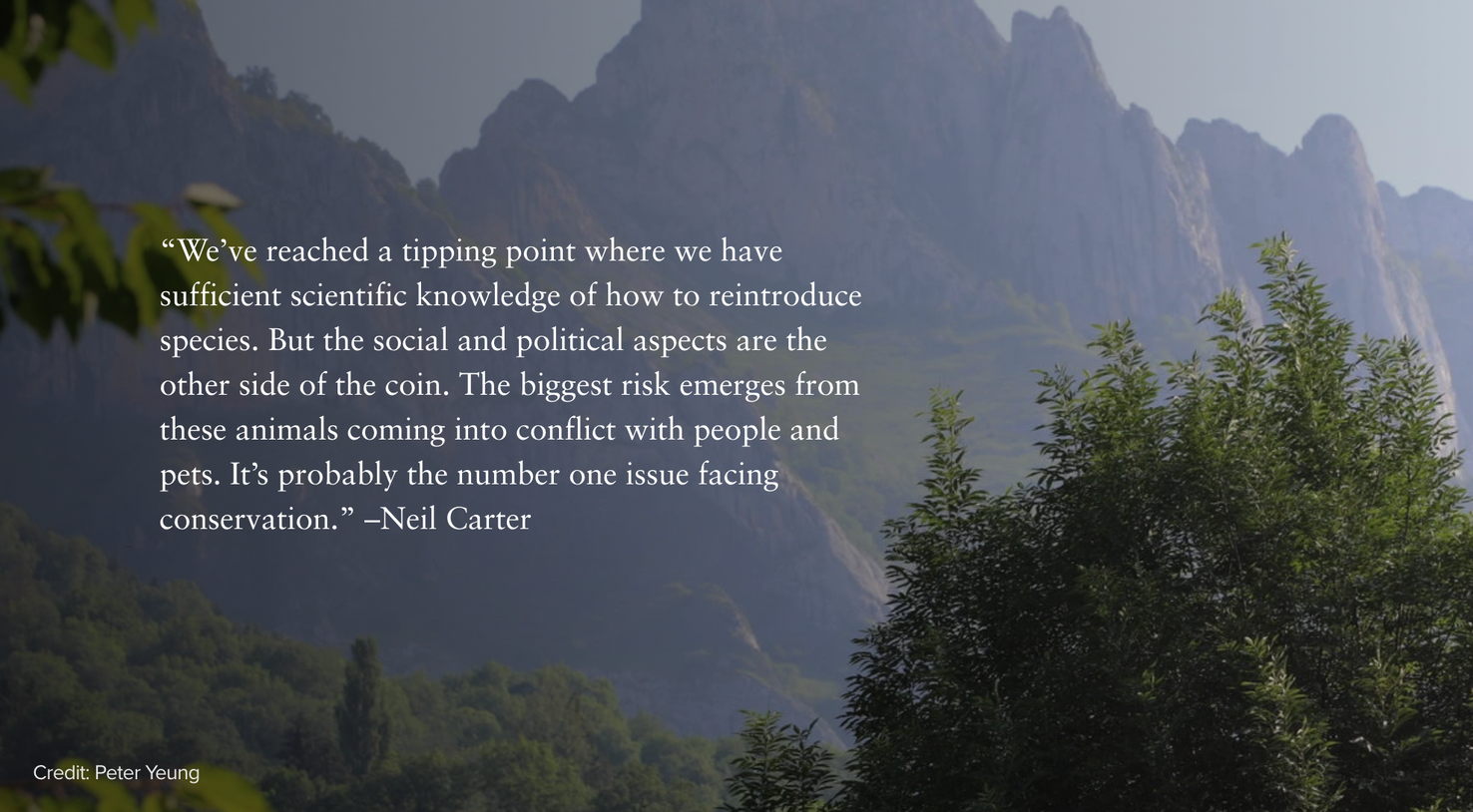
That's a wrap, hope you enjoyed the news. We know there are some truly horrific things happening in the world at the moment, but they're not the only stories out there. Human beings are capable of so much more than just anger and revenge.
We'll see you next week.
Much love,
Gus and Amy



